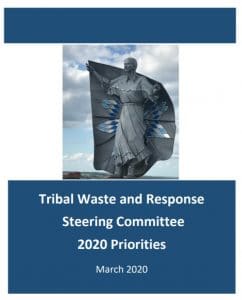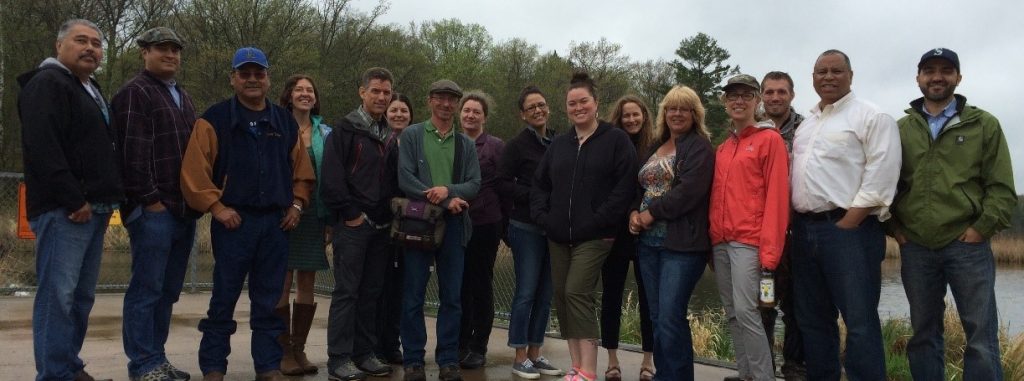The Institute for Tribal Environmental Professionals (ITEP) at Northern Arizona University has received a five-year, $2,450,000 cooperative agreement from the U.S. Environmental Protection Agency’s Office of Land and Emergency Management (OLEM). This is the third time ITEP has competed for and been awarded this five-year cooperative agreement.
The agreement with EPA is wide-ranging and allows for ITEP to strengthen and expand its training, technical assistance and resources to Native American tribes and Alaska Native Villages for subjects relating to solid and hazardous waste, resource conservation, brownfields, Superfund, underground storage tanks and emergency response. The program supports a national Steering Committee of Tribal Professionals and the Tribal Superfund Working Groups, as well as the Tribal Lands and Environment Forum, a national training event for tribal environmental professionals.
This program is critical because the history of environmental contamination on tribal lands is long and 
With more than 570 federally recognized tribes in the United States and more than 53 million acres of tribal lands spread throughout the country, an area roughly the combined size of Idaho, North Dakotaand South Dakota, the scope and magnitude of environmental contamination in Indian Country and the need for training and technical assistance becomes abundantly clear.

“This new grant allows us to work with tribes and develop trainings and technical resources that meet their needs. Recently we created an online 8-Hour HAZWOPER refresher training, a course that emergency response staff need to complete each year. By offering this course online, tribal environmental professionals from across the country can maintain their certifications at no cost.”
Listening to tribes and understanding how best to meet the needs and priorities for training and technical assistance in Indian Country is fundamental to the work of this cooperative agreement. As such, ITEP works closely with a 10-member steering committee comprised of environmental professionals representing tribes from every region of the country. Every year the Tribal Waste & Response Steering Committee also develops a Priorities Document, which helps to inform ITEP and the EPA on the issues that require attention and solutions.
“Every member of this steering committee is a community frontline employee, and yet they volunteer their time, experience and skills to benefit all tribes throughout the country,” Barnell said. “During this challenging time, they are serving as mentors to their colleagues and making sure tribal voices are heard at the highest levels of the U.S. Environmental Protection Agency.”
Chad Hamill, vice president of NAU’s Office of Native American Initiatives, agreed on the importance of
“Once again, ITEP has demonstrated that they are the national go-to source for critical training of tribal environmental professionals,” he said. “In the era of climate change, their work on behalf of Native nations is more important than ever.”
In addition to Barnell, ITEP’s Tribal Waste and Response Program team includes Jennifer Williams, Julie Jurkowski and Julie Tieman. Learn more about this program on ITEP’s website.



